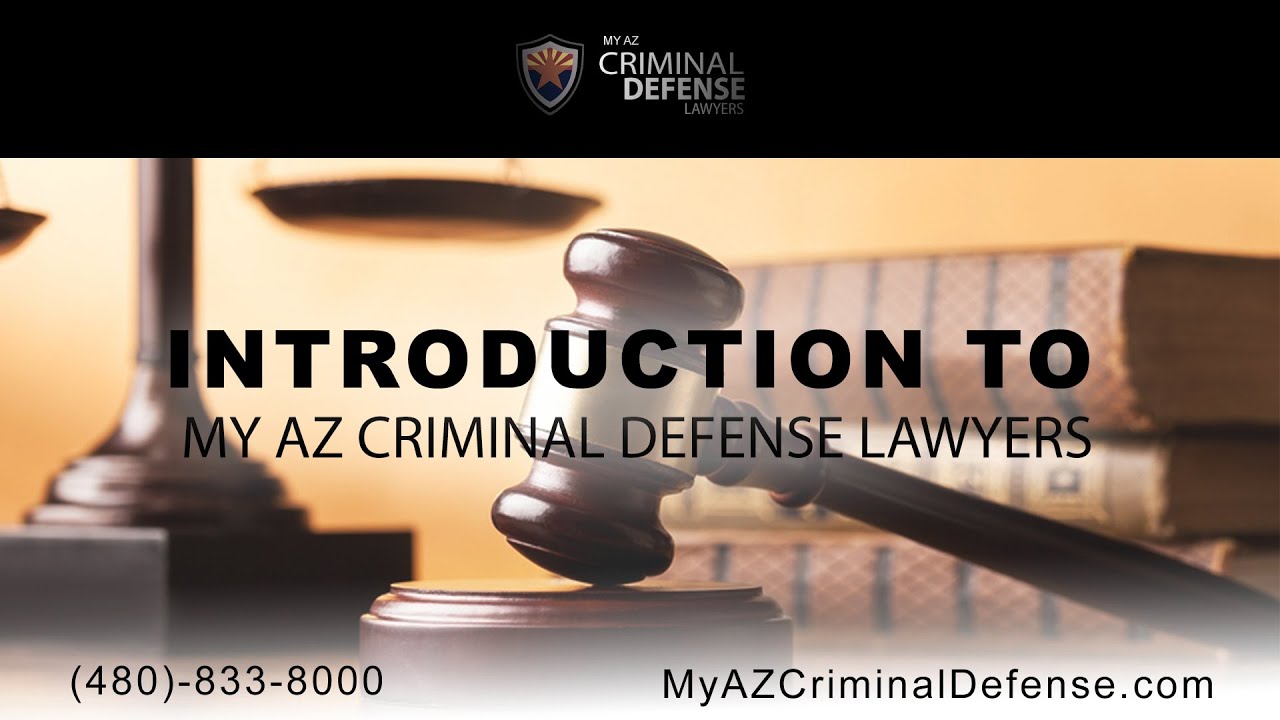Brain Damage from a Car Accident
If you’ve ever been in a car accident, you know that it can be a terrifying experience. Even a minor fender-bender can leave you feeling shaken and disoriented. But what if you’re in a more serious accident? What if you suffer a traumatic brain injury (TBI)?
TBIs are a major public health problem. According to the Centers for Disease Control and Prevention, over 2.8 million people in the United States suffer a TBI each year. Of those, over 50,000 die and many more are left with disabilities.
TBIs can be caused by a variety of factors, including:
- Car accidents
- Motorcycle accidents
- Falls
- Sports injuries
- Military combat
The severity of a TBI depends on the nature of the impact and the part of the brain that is injured. Symptoms of a TBI can include:
- Loss of consciousness
- Headache
- Nausea
- Vomiting
- Confusion
- Memory loss
- Difficulty concentrating
- Mood changes
- Behavior problems
If you think you may have suffered a TBI, it’s important to seek medical attention immediately. Treatment for a TBI may include surgery, medication, and rehabilitation.
The Importance of Wearing a Seatbelt
The best way to prevent a TBI is to wear a seatbelt. Seatbelts reduce your risk of being thrown from the vehicle in a crash, which can help to prevent head injuries. In fact, the National Highway Traffic Safety Administration (NHTSA) estimates that seatbelts saved over 15,000 lives in 2020.
Wearing a seatbelt is the law in all 50 states. If you’re caught driving without a seatbelt, you could face a fine or even jail time.
What to Do if You’re in a Car Accident
If you’re in a car accident, the most important thing to do is to stay calm and assess the situation. If you’re able to move, check yourself for injuries. If you have any serious injuries, call 911 immediately.
If you’re not able to move, try to stay still and wait for help to arrive. Moving around could make your injuries worse.
Once help arrives, the paramedics will assess your injuries and transport you to the hospital if necessary. The hospital staff will then provide you with treatment for your injuries.
Recovery from a Brain Injury
Recovery from a brain injury can be a long and difficult process. It may take months or even years to recover your full function. However, with the right treatment and support, you can make a full recovery.
Here are some tips for recovering from a brain injury:
- Get plenty of rest.
- Eat a healthy diet.
- Exercise regularly.
- Attend rehabilitation therapy.
- Connect with other survivors of brain injuries.
Recovery from a brain injury is possible, but it takes time and effort. With the right support, you can make a full recovery.
Brain Damage from a Car Accident: What You Need to Know
A car accident can leave victims with a range of injuries, some of which may not be immediately apparent. One of the most serious potential consequences of a car accident is brain damage. When the delicate tissue of the brain is impacted or compressed, it can lead to a variety of cognitive, physical, and emotional impairments.
Types of Brain Damage
Traumatic brain injuries (TBIs) can be classified into four main categories: concussions, contusions, lacerations, and diffuse axonal injuries. Concussions are the mildest form of TBI, typically resulting from a brief loss of consciousness. Contusions, or bruises of the brain, are more severe and can cause localized swelling and bleeding. Lacerations are tears in the brain tissue, while diffuse axonal injuries involve widespread damage to the long nerve fibers that connect different parts of the brain.
Signs and Symptoms of Brain Damage
The signs and symptoms of brain damage can vary widely depending on the type and severity of the injury. Some of the most common symptoms include: headaches, dizziness, nausea, vomiting, confusion, memory loss, difficulty concentrating, and personality changes. In severe cases, brain damage can lead to coma or even death.
Treatment for Brain Damage
The treatment for brain damage depends on the nature and severity of the injury. Mild TBIs often resolve on their own with rest and supportive care. More severe injuries may require surgery, medication, or rehabilitation therapy. In some cases, brain damage may result in permanent disabilities.
Preventing Brain Damage in Car Accidents
The best way to prevent brain damage in a car accident is to avoid the accident altogether. However, if an accident is unavoidable, there are a few things you can do to reduce the risk of injury:
- Wear a seatbelt
- Drive sober
- Avoid distractions
- Get regular checkups
Conclusion
Brain damage from a car accident can have a devastating impact on the life of the victim and their loved ones. By understanding the risks and taking steps to prevent brain injuries, you can help to ensure a safe and healthy future.
Brain Damage from Car Accidents: An Overview
Car accidents are a major cause of brain damage and can lead to a wide range of disabilities. The severity of the damage depends on the type of accident, the force of the impact, and the location of the injury. In some cases, brain damage from a car accident can be fatal.
The brain is a delicate organ and is protected by the skull. However, the skull can be fractured in a car accident, allowing the brain to be injured. The brain can also be injured by the sudden acceleration or deceleration forces that occur during a car accident.
The symptoms of brain damage from a car accident can vary depending on the severity of the injury. Some common symptoms include:
- Headache
- Nausea
- Vomiting
- Dizziness
- Confusion
- Memory loss
- Difficulty concentrating
- Personality changes
- Seizures
- Coma
If you experience any of these symptoms after a car accident, it’s important to seek medical attention immediately.
Causes of Brain Damage in Car Accidents
The sudden impact and acceleration-deceleration forces during a car accident can cause the brain to strike the skull, leading to damage and bleeding. The brain can also be injured by objects that penetrate the skull, such as shards of glass or pieces of metal.
Brain damage in car accidents can be caused by a variety of factors, including:
1. Direct impact to the brain: This can occur when the head strikes the windshield or another object during a accident.
2. Acceleration-deceleration forces: These forces can cause the brain to move back and forth within the skull, damaging brain tissue and blood vessels.
3. Shearing forces: These forces can occur when the head is twisted or turned suddenly, causing tearing of brain tissue. Shearing forces are particularly damaging to the brain’s axons, which are long, thin fibers that transmit electrical signals throughout the brain. Axonal damage can lead to a range of problems, including cognitive impairment, memory loss, and paralysis.
Treatment for Brain Damage from a Car Accident
The treatment for brain damage from a car accident depends on the severity of the injury. In some cases, surgery may be necessary to remove blood clots or repair damaged tissue. In other cases, medication may be used to reduce swelling and inflammation. Physical therapy and occupational therapy may also be used to help the patient regain function.
The recovery process from brain damage from a car accident can be long and challenging. However, with proper treatment and support, many people are able to make a full recovery.
Brain Damage from a Car Accident: A Silent Epidemic
It’s a chilling statistic: every 15 minutes, someone in the United States suffers a traumatic brain injury (TBI). But what exactly is TBI, and what are the signs that you or a loved one may have sustained one? A TBI is a disruption in the normal function of the brain that can be caused by a bump, blow, or jolt to the head. Car accidents are a leading cause of TBI, accounting for over half of all cases.
Symptoms of Brain Damage
The symptoms of TBI can vary widely depending on the severity of the injury, but some common signs include:
- Loss of consciousness
- Confusion
- Memory loss
- Headaches
- Nausea
- Seizures
In some cases, TBI can also lead to more severe complications, such as coma or death. If you or someone you know experiences any of these symptoms after a car accident, it’s important to seek medical attention immediately.
Physical Symptoms
The most common physical symptoms of brain damage from a car accident include headaches, dizziness, nausea, and vomiting. These symptoms can range from mild to severe, and they can last for days, weeks, or even months after the accident. In some cases, brain damage can also cause more serious physical problems, such as seizures, paralysis, or coma.
Cognitive Symptoms
Cognitive symptoms of brain damage from a car accident can include problems with memory, attention, and concentration. These problems can make it difficult to perform everyday tasks, such as work, school, or driving. In some cases, brain damage can also cause more severe cognitive problems, such as dementia or Alzheimer’s disease.
Emotional Symptoms
Emotional symptoms of brain damage from a car accident can include depression, anxiety, and irritability. These symptoms can make it difficult to cope with the physical and cognitive challenges of brain damage. In some cases, brain damage can also cause more severe emotional problems, such as psychosis or schizophrenia.
Behavioral Symptoms
Behavioral symptoms of brain damage from a car accident can include aggression, impulsivity, and disinhibition. These symptoms can make it difficult to interact with others and to function in society. In some cases, brain damage can also cause more severe behavioral problems, such as criminal behavior or violence.
Brain Damage from a Car Accident
A car accident can be a life-altering event, and the consequences can be devastating, especially if it involves head trauma. Brain damage, a serious injury that can result from a car accident, can significantly impact a person’s cognitive, physical, and emotional well-being. While some brain injuries may be mild, others can be severe and even life-threatening.
Diagnosis and Treatment
Diagnosing brain damage typically involves imaging tests like CT scans or MRIs. Based on the type and severity of the injury, treatment options can range from rest and medication to surgical interventions. Recovery and rehabilitation play a crucial role in managing brain damage, and the specific approach depends on the individual’s unique circumstances and the extent of their injuries.
Symptoms
The symptoms of brain damage from a car accident can vary widely depending on the location and severity of the injury. Some common symptoms include:
- Headaches
- Dizziness and nausea
- Memory loss and difficulty concentrating
- Mood swings and irritability
- Sleep problems
- Speech and language difficulties
- Motor skill impairments
If you experience any of these symptoms after a car accident, it is essential to seek medical attention immediately.
Causes and Risk Factors
Car accidents remain a leading cause of brain injuries, with several factors increasing the risk of severe head trauma. These include:
- Unrestrained driving: Not wearing a seatbelt significantly increases the risk of head injuries.
- High-speed collisions: Accidents involving high speeds are more likely to result in severe brain damage.
- Ejection from the vehicle: Being thrown from a vehicle during an accident can lead to severe head trauma.
- Rollover accidents: These types of accidents often involve multiple impacts, increasing the risk of brain injury.
- Blunt force trauma: Direct impact to the head from the steering wheel, dashboard, or other objects inside the vehicle can cause brain damage.
- Physical therapy
- Occupational therapy
- Speech therapy
- Cognitive therapy
- Blunt force: The impact of the vehicle on the head can cause the brain to strike the inside of the skull, leading to bruising, contusions, or lacerations.
- Concussion: A sudden acceleration or deceleration can cause the brain to shake violently, causing temporary loss of consciousness or confusion.
- Diffuse axonal injury: Shearing forces can damage the brain’s nerve fibers (axons), impairing communication between different brain regions.
- Loss of consciousness
- Headaches
- Nausea and vomiting
- Difficulty speaking or understanding language
- Impaired balance and coordination
- Memory loss
- Confusion and disorientation
- Memory loss: Difficulty remembering events, names, or faces.
- Executive dysfunction: Impaired attention, problem-solving, and decision-making.
- Speech and language difficulties: Difficulty speaking, understanding, or reading.
- Motor function: Weakness, paralysis, or difficulty with coordination.
- Sensory function: Loss of vision, hearing, or touch.
- Balance and coordination: Difficulty walking or maintaining balance.
- Wear a seatbelt. Seatbelts are the single most effective way to prevent brain damage in a car accident. They keep you in place and prevent your head from hitting the windshield or other hard surfaces.
- Avoid distractions. Distracted driving is a major cause of car accidents. When you’re driving, focus on the road and avoid talking on your phone, texting, or eating.
- Drive defensively. Be aware of your surroundings and anticipate potential hazards. Drive at a safe speed and be prepared to stop or slow down suddenly if necessary.
- Cognitive problems. Brain damage can affect your ability to think, remember, and learn. You may have difficulty concentrating, making decisions, or solving problems.
- Physical disabilities. Brain damage can also cause physical disabilities, such as paralysis, weakness, or difficulty speaking. You may also have difficulty walking or balancing.
- Emotional problems. Brain damage can also affect your emotions. You may experience depression, anxiety, or mood swings. You may also have difficulty controlling your impulses or emotions.
- Surgery. Surgery may be necessary to remove blood clots or repair damaged tissue.
- Medication. Medication can be used to treat the symptoms of brain damage, such as pain, seizures, or depression.
- Rehabilitation. Rehabilitation can help you improve your physical, cognitive, and emotional function after a brain injury. Rehabilitation may include physical therapy, occupational therapy, speech therapy, and cognitive therapy.
Rehabilitation and Recovery
Rehabilitation is a crucial part of recovery from brain damage. The rehabilitation process can be lengthy and challenging, but it can significantly improve the quality of life for survivors. Rehabilitation typically involves various therapies, such as:
The goal of rehabilitation is to help survivors regain lost skills, improve their quality of life, and reintegrate into their community.
Brain Damage from a Car Accident: Understanding the Risks and Challenges
Car accidents are often unpredictable, causing severe injuries that can range from minor scrapes to life-threatening conditions. Brain damage is one of the most severe consequences of a car accident, leaving victims with potentially lifelong impairments.
Mechanism of Brain Damage
During a car accident, the brain can sustain damage from various forces:
Symptoms of Brain Damage
Brain damage can manifest in a wide variety of symptoms, depending on the severity and location of the injury. Common symptoms include:
Diagnosis and Treatment
Diagnosing brain damage usually involves a comprehensive medical history, physical examination, and imaging tests such as CT scans or MRIs. Treatment for brain damage focuses on stabilizing the patient, reducing swelling, and managing symptoms. Medications, surgery, and rehabilitation are often necessary.
Prognosis and Recovery
Recovery from brain damage can be a long and arduous journey. The extent of recovery depends on the severity of the injury and the individual’s overall health. Some may make a full recovery, while others may experience permanent disabilities.
Cognitive Impairments
Brain damage can lead to a range of cognitive impairments, such as:
Physical Effects
Brain damage can also cause physical impairments, such as:
Behavioral Changes
Brain damage can also affect behavior, leading to changes in personality, mood, and social interactions. These changes can be challenging for both the individual and their loved ones.
Coping and Support
Coping with brain damage requires a multifaceted approach involving medical care, rehabilitation, emotional support, and practical assistance. Family and friends play a vital role in providing encouragement, understanding, and assistance with daily tasks. Support groups can also offer a sense of community and shared experiences.
Brain Damage from a Car Accident
Brain damage from a car accident is a serious and life-altering injury. It can cause a wide range of symptoms, from cognitive problems to physical disabilities. In some cases, brain damage can even be fatal.
The severity of brain damage depends on a number of factors, including the force of the impact, the location of the injury, and the age and health of the victim. Treatment for brain damage varies depending on the severity of the injury, but may include surgery, medication, and rehabilitation.
Preventing Brain Damage in Car Accidents
There are a number of things you can do to reduce your risk of brain damage in the event of a car accident:
What are the symptoms of brain damage from a car accident?
The symptoms of brain damage from a car accident can vary depending on the severity of the injury. Some common symptoms include:
How is brain damage from a car accident treated?
Treatment for brain damage from a car accident varies depending on the severity of the injury. Treatment may include:




Leave a Reply